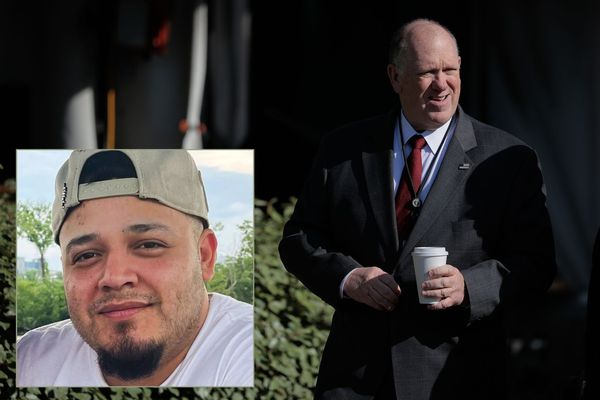Brazil’s federal police recently pulled back the curtain on a criminal web that had infiltrated the country’s fuel distribution chains. What looked like ordinary gas stations were, in fact, outposts of a vast laundering machine, washing dirty money with diesel and ethanol. According to Justice Minister Ricardo Lewandowski, more than 1,000 service stations across the country were overseen by organised crime syndicates.
The plot thickened when Rio de Janeiro’s state police launched raids against the so-called “fuel mafia”, dismantling a racket that sold millions of liters of adulterated fuel. In the process, they revealed a network of ghost companies churning out fake invoices.
Crime moves into the fuel sector
Across Brazil organised crime is diversifying beyond narcotics, arms trafficking into the biofuel and fossil fuel sectors. Criminal factions with names such as the Primeiro Comando da Capital (PCC), Comando Vermelho (CV), and militia groups made-up of retired and active duty police are expanding into fuel theft, smuggling, tax evasion, and money laundering. The pivot by Brazil’s criminal underworld underscores their adaptability in exploiting legitimate markets.
Fuel theft is hardly new to Brazil. The country’s top fuel distributors – Ale, BR, Ipiranga, and Raizen – have warned of criminal infiltration. But the costs of these illegal activities are significant. According to ICL, an industry group, illegal profits generated by gas stations amounted to $23 billion reais($3.89 billion) in 2021.
A 2022 study by the Brazilian Public Security Forum (FBSP) revealed that criminal organisations generated approximately 146.8 billion reais (around $25.4 billion) from sectors including fuel, gold, cigarettes, and beverages far surpassing the revenues from cocaine trafficking.
Meanwhile, a 2024 assessment found that the costs of cargo-theft, fuel-related robberies and fraud generated annual losses of $29 billion reais. Vibra Energia estimated that roughly 13 billion liters of fuel were being traded through “irregular” means a year.
Fake gas stations, adulterated fuel, and tax fraud
Organised criminal groups employ multiple strategies to exploit the fuel sector. The most common involves the use of “pirate” gas stations — outlets that flout safety standards and sell adulterated and stolen fuel. Police have exposed hundreds of gas stations linked to individuals indicted or convicted for fuel-related offenses since 2015. In 2019, for example, BR purged its retail network of 730 stations nationwide suspected of involvement in “irregularities”.
By 2023, the PCC reportedly extended its influence to five ethanol plants and approximately 1,100 of São Paulo’s 9,000 gas stations. And in 2024, police claimed that as many as 30 gas stations in Rio de Janeiro were under PCC control. Meanwhile, the National Agency for Petroleum, Natural Gas and Biofuels (ANP) reported that violations related to the use of methanol — a toxic substance commonly used to adulterate fuels—increased by over 73 percent compared to the previous year.
Fraud and tax evasion are also common in the fuel sector. In Brazil, fuel taxes on ethanol vary from state to state. These discrepancies create incentives for enterprising criminals to purchase fuel from low-tax jurisdictions and resell in high-tax states to station owners who charge higher tax and pocket the difference.
A 2019 study by FGV estimated that fuel-related tax evasion generated 7.2 billion reais ($1.3 billion), with major rewards for petrol station owners that laundered funds. There are also schemes that involve tax fraud in fuel production and illegal diesel imports. One prominent case involved Copape, a company that sold fuel below market price by evading import taxes and manipulating its product. The company was later shut down amid allegations of ties to the PCC.
Another common strategy involves outright theft by installing clandestine taps and siphoning fuel from pipelines. This practice often leads to significant economic losses and poses environmental hazards and public safety risks. The process usually involves precise “insider” knowledge of pipeline networks. In 2019, for example, Petrobras identified over 261 such incidents in Rio de Janeiro and São Paulo alone.
The direct targeting of personnel and infrastructure has also occurred. In 2019, for example, more than 40 people were arrested in Rio de Janeiro in 2019 suspected of extorting and murdering Petrobras contactors. The group was described as highly organised with separate divisions for intimidating targets, tapping pipelines, transporting stolen fuel, and monitoring police movements. Stolen fuel can be sold on to asphalt companies, underground gas owners, and others.
The entrenchment of organised crime in biofuels such as sugar and palm oil has resulted in confrontations with state authorities. In August 2024, 59,000 hectares of São Paulo’s sugarcane plantations were ravaged by fires resulting in losses of over 1 billion reais. Authorities suspect that the PCC orchestrated arson attacks as retaliation against government measures targeting their involvement in the adulterated fuel trade.
And in February 2025, police in Rio de Janeiro revealed that operators of an illegal gambling (jogo do bicho) network were financing the criminal extraction of oil from underground pipelines. Proceeds were used to acquire equipment, rent fuel transport vehicles, and pay off personnel. In Rio, and elsewhere in Brazil, such activities undermine the rule of law, distort markets, and erode public trust.
Technology-enabled solutions to disrupt fuel theft
Preventing and disrupting infiltration of organised crime into the fuel sectors is challenging. Legal proceedings are often protracted. Efforts by fuel distributors to terminate franchise agreements with non-compliant operators are often stymied by prolonged court battles. The sophistication of Brazil’s criminal organisations also complicates enforcement efforts including their blending of illicit activities with legitimate business.
At a minimum, federal and state authorities need to track gas stations and pipelines that are implicated in crime. Advanced tracking technologies that improve transparency in the fuel supply chain. And these solutions need to be bolstered by intelligence sharing across jurisdictions. One promising response comes from Brazil’s National Institute of Metrology (Inmetro) which has expanded its inspections of fuel pumps and product quality.
Companies like Petrobras have ramped up their security measures to protect pipelines, refineries, transportation systems, and petrol stations. Advanced surveillance systems, including drones and sensor-based technology, are now being used by its subsidiary, TransPetro, to monitor pipeline integrity.
Specialised response teams have also been established to detect and contain illegal taps. Petrobras and Transpetro have also increased collaboration with federal and state security forces to target organised crime cells involved in fuel theft and trafficking.
In especially high-risk areas, particularly near major refineries such as Duque de Caxias in Rio de Janeiro, joint operations with law enforcement have resulted in arrests and the seizure of illegal equipment used to tap pipelines.
Petrobras has invested in internal compliance, audit mechanisms, and fuel traceability systems to track product movement and prevent insider threats and diversion to illicit markets. The company has also partnered with regulatory agencies like the (National Agency of Petroleum, Natural Gas and Biofuels, or ANP) to tighten oversight over gas stations and transport companies suspected of facilitating the resale of adulterated or stolen fuel.
Legislation and regulation is also needed to increase penalties for criminality in the fuel sector. Legal reforms, including a new bill approved in April 2025 targets companies that systematically evade taxes. Another bill is being explored that would mandate real-time electronic reporting of fuel sales and storage to ANP in order to increase traceability.
A new Parliamentary Commission of Inquiry focusing on the relationship between organised crime and fuel is also about to be launched. Federal police, together with the financial intelligence unit (COAF) and tax authorities are also preparing a broad investigation into related activities.
Addressing the infiltration of organised crime into Brazil’s biofuel and fossil fuel sectors requires more than enforcement — it demands a coordinated national strategy backed by industry cooperation. Enforced compliance, empowered regulators, transparent supply chains, and worker protections are essential. Without urgent and sustained action, organised crime will continue siphoning off Brazil’s future, weakening one of its most vital sectors.
*Katherine Aguirre, senior researcher at Igarape Institute, contributed to this article
Dr. Robert Muggah is the co-founder of the Igarapé Institute, an independent "think and do tank" that develops research, solutions and partnerships to address global public, digital and climate security challenges. Dr. Muggah is also a principal of the SecDev Group, and an advisor to the United Nations, the IMF and the World Bank. An advisor to AI start-ups and a climate tech venture firms, Dr. Muggah has experience developing new technologies and testing AI systems for security and governance.
This article was originally published on The Conversation. Read the original article.







